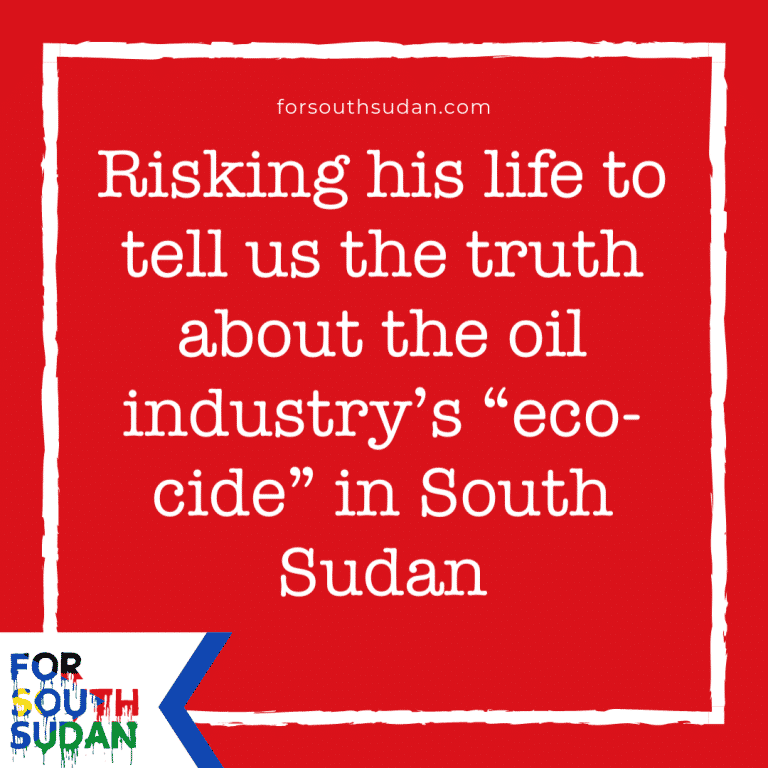Ministers and MPs decry deformed babies, miscarriages, ailments; call for systematic health study and an end to the revenues freeze-out
by Francis Michael
We Are Witness
Front-line journalists in South Sudan
January 29, 2019
The government of South Sudan and international companies are busy ramping up oil production.
Officials in the oil-producing regions are, in turn, struggling to deal with the deadly legacy of past operations – and trying desperately to get these companies to implement the measures needed to safeguard the health of their people and environment.
“We have strong physical evidence of the negative effects of oil wastes and spills in the oil-producing regions: incidents of congenital malformation among babies, as well as numbers of miscarriages and still-born infants in the oil regions. This is joined by reports of large numbers of other oil contamination-caused ailments,” states Simon Chol, the minister of health of South Sudan’s Northern Liech state.
Chol adds: “What is needed is the conducting of a study that would cover all of the oil regions’ people. This assessment would enable us to find out how extensive these deaths and ailments are in relation to the population as a whole.”
Chol concludes: “We in the oil-producing regions are now waiting to see if the increase in oil production will sooner or later yield a corresponding rise in cases of health damaging.”
Chol’s call for a study is being complemented by MPs in oil regions’ demands for their constituents’ getting a fair share of oil revenues.
As one MP, Boai Keke, stated in Eye Radio: “My constituents have yet to benefit from oil revenues. And this even though South Sudan’s constitution’s 15th Amendment allocates 2% of oil revenues to such regions.”
While local officials and MPs have been protesting the oil industry’s past misdeeds, Ezekiel Lol Gatkuoth, South Sudan’s minister of petroleum has been occupying himself with the reopening of wells, states Lam Tongwar, minister of information of Northern Liech state.
The calls and demands may in fact be having an impact on Gatkuoth and his ministry.
According to a source working for an oil company, the minister interrogated corporate executives of the company while he was visiting an oil field in the Upper Nile region. The minister supposedly demanded that the managers delineate the extent, causes and ramifications of the company’s environmentally-damaging activities.
This questioning pressured the company into admitting such activities, which have included the failure to adequately treat waste water.
Including the misuse of chemicals and their being allowed to flow on and seep into the ambient environment, such practices had also highly detrimental effects on oil production, states a spokesperson for South Sudan’s ministry of petroleum.
The ministry has pledged to couple the ongoing ramping up of oil production with a beefing up of the protection of the environment. Based on the past three decades’ widespread flouting of environmental standards, the people living in oil producing-regions remain highly skeptical.



